
Photo credit: Savannah Lauren
"Once I started thinking about it, I realized the lockdown was the perfect backdrop for claustrophobic suspense: It turned every home into a crucible. I’ve always loved writing about close-knit, closed-door social milieux...and in 2020 the pandemic forced us all to hunker down and cinch the drawstrings of our lives."
New York Times bestselling author Andrea Bartz is well known for writing scalpel-sharp observations about what she calls “close-knit, closed-door social milieux”—and the COVID-19 pandemic provided an opportunity to explore such dynamics in intriguing—if initially unappealing—new ways.
In Bartz's standalone suspense novel, The Spare Room (2023, Ballantine Books), Bartz introduces thirtysomething Kelly Doyle, who finds herself falling out with her fiancé as the pandemic rages around her. So when the opportunity to quarantine with an old high school acquaintance arises, she jumps at the chance. Sabrina is a successful writer and social media darling whose husband, Nathan, has a high-powered career in the US Department of Defense—and their gated mansion on the outskirts of Washington, DC, offers the promise of safety. But what begins as a bit of flirtatious fun between the three escalates when the couple invite Kelly into their marital bed.
Surprised by her attraction to both Nathan and Sabrina, Kelly enters into a romantic entanglement with them. But the exhilaration of this new experience soon begins to wear thin, leaving her to wonder where exactly she fits into their already established relationship—and her uncertainty only deepens when she learns that their last lover went missing under mysterious circumstances. With far more questions than answers, Kelly’s spacious new home becomes a claustrophobic prison as she embarks on a deadly search for truth.
Mystery Scene contributor John B. Valeri ask Bartz about the literal and emotional truths that inspired The Spare Room…
John B. Valeri for Mystery Scene: The Spare Room’s origins are rooted in the pandemic. What compelled you to write about covid times, and how did you endeavor to capture the realities of quarantine without allowing it to overwhelm the narrative?
Andrea Bartz: Although the book was inspired by my own lockdown experience—after staring at the walls of my studio apartment for a few months, I packed up and moved in with a high school friend and her family—I initially pitched the book to my editor without a pandemic setting. “Who wants to read about it?!” I cried. “There’s a reason so few books are set during the Spanish flu!” But my editor pointed out that the pandemic allowed living situations like mine (and my protagonist’s) to arise: When else had so many independent adults abruptly begun crashing with friends?
Once I started thinking about it, I realized the lockdown was the perfect backdrop for claustrophobic suspense: It turned every home into a crucible. I’ve always loved writing about close-knit, closed-door social milieux (from the perfect-seeming members of a glamorous, all-female coworking space in The Herd to the cooler-than-thou hipsters in The Lost Night), and in 2020 the pandemic forced us all to hunker down and cinch the drawstrings of our lives. The eerie silence and tension of that period made my authorly spider sense tingle: The empty streets and quiet dread reminded me of a Hitchcock film, and as newscasters hammered home that stranger danger was real, that anyone could kill us, that we should truly trust no one, I noticed the messaging echoed some of my favorite horror films.
Though the pandemic is simply the backdrop for The Spare Room, not the focus, I loved turning the isolation and fear up to 11 for dramatic effect. Recoiling from touch, never meeting the neighbors, not answering the door, crossing the street to avoid another person, being unable to see someone’s entire face—these are the tiny, terrifying things we dealt with every day, and while they don’t drive the book’s narrative, they certainly contribute to its unsettling tone.
Your protagonist, Kelly, is vulnerable at the story’s outset, both in terms of her mental state and physical space. How do her circumstances separated from her fiancé, living with veritable strangers make her more susceptible to possible manipulations, and more questioning of people’s motivations (including her own)?
Early in the pandemic, when I was still living alone in Brooklyn, I started seeing my therapist over this kooky little service called Zoom. (Such novelty!) One week, she asked if I’d had any real-life (socially distanced) conversations with friends since we last spoke. “No,” I told her, “but I feel pretty good this week. I don’t think I need to make more plans.” She explained that the brain’s self-protective mechanisms automatically kick in to handle the current situation—to make it feel normal and fine, even when it’s not. (Anyone who’s ever yelled, “What took me so long?” after finally leaving a relationship or job can attest to this!) “You do need to see other people,” she told me. “Even if you don’t feel like it.”
As you noted, Kelly’s miserable at the book’s onset—she’s friendless and jobless in a new city after following her fiancé there, and then, once lockdown hits, trapping them in their townhouse, he calls off the wedding. In non-pandemic times she could just leave, but not now. So it makes sense that an invitation from Sabrina, someone she hasn’t spoken to in years—a high school friend with whom she’s rekindled a friendship out of lockdown boredom—seems like a great choice. Then, not long after moving in with Sabrina and her husband, Kelly starts to fall for them—and willingly enters a three-way relationship despite a parade of red flags.
We talked a lot about “unprecedented times” back in 2020, and Kelly’s in a stew of unprecedented experiences: She’s in a global pandemic, cut off from the rest of the world (including the friends who might normally go, “Honey, what are you doing?”), discovering her bisexuality, and exploring polyamory. She’s a neophyte in every possible realm! So it’s no surprise she convinces herself that she can trust the couple she’s infatuated with and explains away all the warning signs. Like my therapist said, the brain works hard to convince us everything is fine. Without her usual reality checks, let alone any possible escape route, Kelly is beyond vulnerable.
The book is a locked-room mystery of sorts. How did you find the constraints of this setup to be both a convenience and a challenge to creating baffling but ultimately believable crime(s)?
If you were going to commit a major crime in your own home, you really couldn’t choose a better time than the lockdown. Who would know? Who would investigate? How would anyone stumble onto the crime scene or cover-up? We were all tucked away in our own pandemic worlds—who knows what really went on behind locked doors? For those reasons, covid was a real boon to characters determined to get away with things. We suspense authors often have to twist ourselves in knots to explain how anyone could think they’d get off scot-free, but state-sponsored social isolation did some of the heavy lifting for me. Though this book isn’t a traditional whodunit, I had so much fun playing with the locked-room setup as the metaphorical walls close in on Kelly and her “perfect” quarantine living situation.
Kelly is surprised by the naturalness with which she finds herself attracted to Sabrina. In what ways were you able to draw upon your own emotional experiences to inform her discovery of being bisexual?
I met my partner Julia in late-summer 2020—and nearly three years later, as we share a car, our pets, and a home address, I officially consider myself queer. But before we started dating, I’d always identified as heterosexual. In many ways, the slow pace and isolation of the pandemic allowed me to start listening to my inner, wiser self: I was thousands of miles from my conservative, traditional upbringing, and hundreds of miles from my close friends, who—though loving and accepting—saw me as a straight woman. And, like many people, when I woke up from the trance of pre-pandemic busy-ness, I looked around and thought, “Wait—my life doesn’t need to be what I thought it was. Do I actually want the things I’m going after?”
I showed Kelly working through many of the same emotions and experiences I’d had: grief over letting go of long-held ideas about herself, forehead-slapping revelations at all the clues she missed (“Wait, straight women don’t get crushes on other women?!”), and surprise at how not-weird this new kind of relationship feels, to name a few.
 Kelly enters a romantic relationship with Sabrina and Nathan, both as a threesome and as a couple with each. What are her perceptions of the power play(s) that exist within their union(s)—and how are her suspicions heightened as she becomes more intimate with them, both individually and as a threesome?
Kelly enters a romantic relationship with Sabrina and Nathan, both as a threesome and as a couple with each. What are her perceptions of the power play(s) that exist within their union(s)—and how are her suspicions heightened as she becomes more intimate with them, both individually and as a threesome?
Kelly’s understanding of polyamory shifts throughout her character arc: At first, she trusts Sabrina and Nathan to show her a triad should work, but by the end of the book, she realizes the way they went about it was, frankly, all wrong. Kelly’s painfully aware that Sabrina and Nathan share a marriage license, a deed, a last name, and decades of shared experience; she can’t possibly catch up on their institutional knowledge of each other. She also feels unclear on so many of the rules of their relationship, struggling to navigate sexual encounters with one or both, how to discuss one partner with the other, and so on. But perhaps the biggest issue is that Nathan and Sabrina shut Kelly down when she seeks clarity—and is there a bigger power play than keeping someone in the dark about how they’re “supposed” to behave?
It was a real challenge to capture these shifting dynamics among the three main characters, especially as Kelly (along with the reader) tries to parse whether Sabrina and Nathan are being willfully obtuse—or doing their best in a tricky situation. I write without an outline, never sure what’ll come next, so the couple even kept me on my toes!
Sabrina and Nathan’s former lover Elizabeth remains a presence throughout the book despite being absent under mysterious circumstances. Tell us about the establishment of her character and the ways in which she haunts Kelly, Sabrina, and Nathan, albeit differently.
As a character, Elizabeth was as slippery as an eel—I had trouble pinning her down even as I worked through several drafts, and her backstory was one of the final elements I hammered into place. I knew Kelly was fascinated by her, maybe even a little obsessed with her…when you’ve got a massive crush on someone, you can’t help but fixate on their latest lover, right? I knew she had to care about and even see herself in this ex so that the revelation that Elizabeth was missing would pack an emotional punch. For Kelly, Elizabeth represents wild, sexy new possibilities—the opposite of her norm-y husband and 2.5-kids life plan.
In The Spare Room, I had fun weaving in ephemera that hinted at a former lover, including the secret Polaroids and half-written manuscript from Sabrina. The physical clues helped me understand the different lenses through which key characters viewed mysterious, enigmatic Elizabeth.
The book is erotically charged without being gratuitous. In terms of sexuality: How did you approach the question of what to show on the page vs. what to leave to the reader’s imagination?
This book would not have worked if Kelly weren’t deeply in love with her hosts—“A young woman moves in with some friends and then idiotically sticks around when she discovers they might be dangerous” is not a great pitch. And the narrative follows her sexual awakening, a huge shake-up to her self-identity that helps explain why she allows herself to be swept up in this thrilling, passionate, unpredictable new relationship. In short: I always knew I’d have to write some sex scenes!
I decided to show more of that first, unexpected, identity-shifting threesome, as well as a later sex scene where Kelly winds up feeling unsafe (no spoilers)—but other than those two, I did a lot of fade-to-black when things were heating up. There are also some intimate scenes that sort of fade in after the event, with characters cuddling and talking in bed. It’s interesting to me that some reviewers seem fixated on what they deem tons of graphic sex…and I can’t help wondering if queer and poly couplings are what make the scenes stick out, compared to spicy moments in other thrillers.
Leave us with a teaser: What comes next?
I’m currently hard at work on my fifth novel, which will come out in 2025. I can’t say too much yet, but whereas The Spare Room was a departure from my past books, this one is sort of a return to form: There’s an immersive tropical setting, an exclusive, fascinating social scene, and a dead body right from the jump. I have no idea how it’ll end, but I’m having a blast writing it!
AN ANDREA BARTZ BIBLIOGRAPHY
www.andreabartz.com
The Lost Night (2019)
The Herd (2020)
We Were Never Here (2021)
The Spare Room (2023)
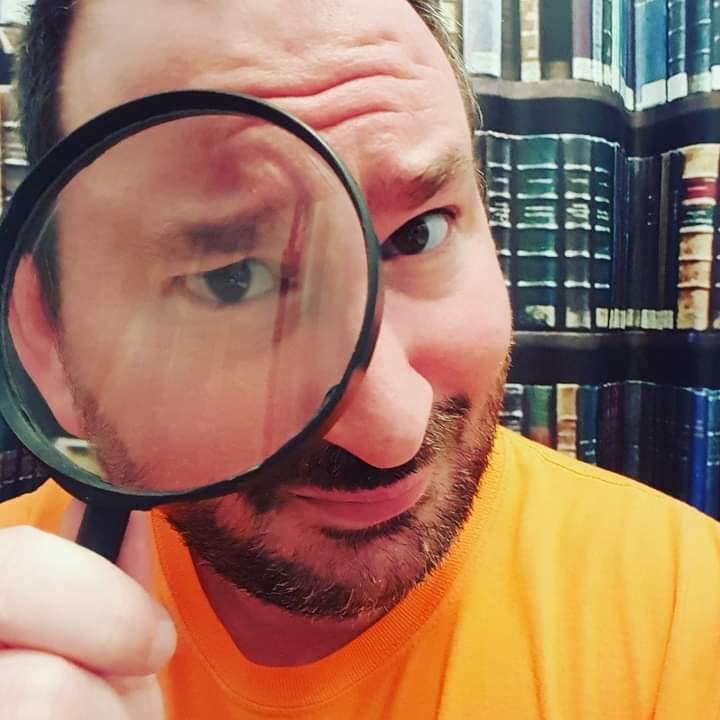 John B. Valeri is a lifelong lover of books and the people who write them and the host of Central Booking, where he interviews authors and other industry insiders. Valeri is a contributor to CrimeReads, Crimespree Magazine, Criminal Element, Mystery Scene Magazine, The National Book Review, The New York Journal of Books, The News and Times, The Strand Magazine, and Suspense Magazine. He regularly moderates author events and book discussions at bookstores and libraries throughout Connecticut, and serves on the planning committee for CrimeCONN, a one-day reader/writer mystery conference cosponsored by Mystery Writers of America/New York Chapter.
John B. Valeri is a lifelong lover of books and the people who write them and the host of Central Booking, where he interviews authors and other industry insiders. Valeri is a contributor to CrimeReads, Crimespree Magazine, Criminal Element, Mystery Scene Magazine, The National Book Review, The New York Journal of Books, The News and Times, The Strand Magazine, and Suspense Magazine. He regularly moderates author events and book discussions at bookstores and libraries throughout Connecticut, and serves on the planning committee for CrimeCONN, a one-day reader/writer mystery conference cosponsored by Mystery Writers of America/New York Chapter.



 I’ve been a huge fan of Block’s fictionalized adventures of New York City private eye Matthew Scudder almost from the moment back in my teens when I picked up a battered, tattered paperback of the series debut Sins of the Father at a rummage sale. The subsequent series, the tweaked and twisted tellings of Matt’s adventures, rendered in first person, have added up to a healthy chunk of Block’s professional career in the last 50 years.
I’ve been a huge fan of Block’s fictionalized adventures of New York City private eye Matthew Scudder almost from the moment back in my teens when I picked up a battered, tattered paperback of the series debut Sins of the Father at a rummage sale. The subsequent series, the tweaked and twisted tellings of Matt’s adventures, rendered in first person, have added up to a healthy chunk of Block’s professional career in the last 50 years. And then maybe eight or so years ago, Block told everyone he was stepping away from writing. Mind you, this is the same cheeky bugger who once published a writing guide entitled Telling Lies for Fun & Profit.
And then maybe eight or so years ago, Block told everyone he was stepping away from writing. Mind you, this is the same cheeky bugger who once published a writing guide entitled Telling Lies for Fun & Profit.



 I read a lot of Warren Murphy and Richard Sapir’s Destroyer series when I was in middle school. My friends and I loved finding out how they were going to use “His name was Remo and…” in chapter one or two of every book. Arliss Cutter rarely smiles—so I customarily find a new situation to put him in where someone would normally be smiling, but he does not. His partner, Deputy U.S. Marshal Lola Teariki’s reaction to the same situation helps to demonstrate her character in slightly different ways from previous books. Still, I have to let the reader know early that Lola is of Cook Island Maori descent and Cutter is a big, surfer-looking dude with mussed blond hair and a resting mean mug. Beyond that, I have usually written some other book in between each Arliss Cutter—either a Jack Ryan for the Clancy estate or one of my own Jericho Quinn novels. That means I’m itching to get back to writing about Arliss, Lola, and the others, so it’s fun for me to reacquaint myself with them. Every book feels like Book 1 in the series when I start it. I usually end up putting in too much reintroduction in the early draft, and cutting a bunch down the road.
I read a lot of Warren Murphy and Richard Sapir’s Destroyer series when I was in middle school. My friends and I loved finding out how they were going to use “His name was Remo and…” in chapter one or two of every book. Arliss Cutter rarely smiles—so I customarily find a new situation to put him in where someone would normally be smiling, but he does not. His partner, Deputy U.S. Marshal Lola Teariki’s reaction to the same situation helps to demonstrate her character in slightly different ways from previous books. Still, I have to let the reader know early that Lola is of Cook Island Maori descent and Cutter is a big, surfer-looking dude with mussed blond hair and a resting mean mug. Beyond that, I have usually written some other book in between each Arliss Cutter—either a Jack Ryan for the Clancy estate or one of my own Jericho Quinn novels. That means I’m itching to get back to writing about Arliss, Lola, and the others, so it’s fun for me to reacquaint myself with them. Every book feels like Book 1 in the series when I start it. I usually end up putting in too much reintroduction in the early draft, and cutting a bunch down the road.






 I recently read your essay on Dorothy L. Sayers and the influence she’s had on your work. Can you talk about that influence in this novel, which is truly a village mystery?
I recently read your essay on Dorothy L. Sayers and the influence she’s had on your work. Can you talk about that influence in this novel, which is truly a village mystery? I thought the relationship between Billy and his love interest Diana is interesting in this novel. They’re actually getting to spend time together after being apart—and it does not go so smoothly. Tell us more about about this developing friendship/romance?
I thought the relationship between Billy and his love interest Diana is interesting in this novel. They’re actually getting to spend time together after being apart—and it does not go so smoothly. Tell us more about about this developing friendship/romance?
 Robin Agnew
Robin Agnew
 Pat H. Broeske for Mystery Scene: Some of our readers might think of The Exorcist as a horror film. But, it’s much more than that, isn’t it? William Peter Blatty called it a whodunit—a supernatural murder mystery. Can you elaborate on the mystery elements of the book and film?
Pat H. Broeske for Mystery Scene: Some of our readers might think of The Exorcist as a horror film. But, it’s much more than that, isn’t it? William Peter Blatty called it a whodunit—a supernatural murder mystery. Can you elaborate on the mystery elements of the book and film? The company line was that, for nearly 88-years-old, he was doing really well. I suspected, of course, that he was reaching the end of his life, but certainly not the end of his productivity, because he has a new film opening in Venice next month, a remake of The Caine Mutiny Court-Martial.
The company line was that, for nearly 88-years-old, he was doing really well. I suspected, of course, that he was reaching the end of his life, but certainly not the end of his productivity, because he has a new film opening in Venice next month, a remake of The Caine Mutiny Court-Martial.





 Dick
Dick 
 Just about every summer I’d spend weeks in Louisiana, running amok with my cousins. My grandparents were still sharecroppers in the 1980s, raising livestock and living in a house where we’d fetch well water and use an outhouse. The land is still untouched, and there’s a tree growing through the old house.
Just about every summer I’d spend weeks in Louisiana, running amok with my cousins. My grandparents were still sharecroppers in the 1980s, raising livestock and living in a house where we’d fetch well water and use an outhouse. The land is still untouched, and there’s a tree growing through the old house.
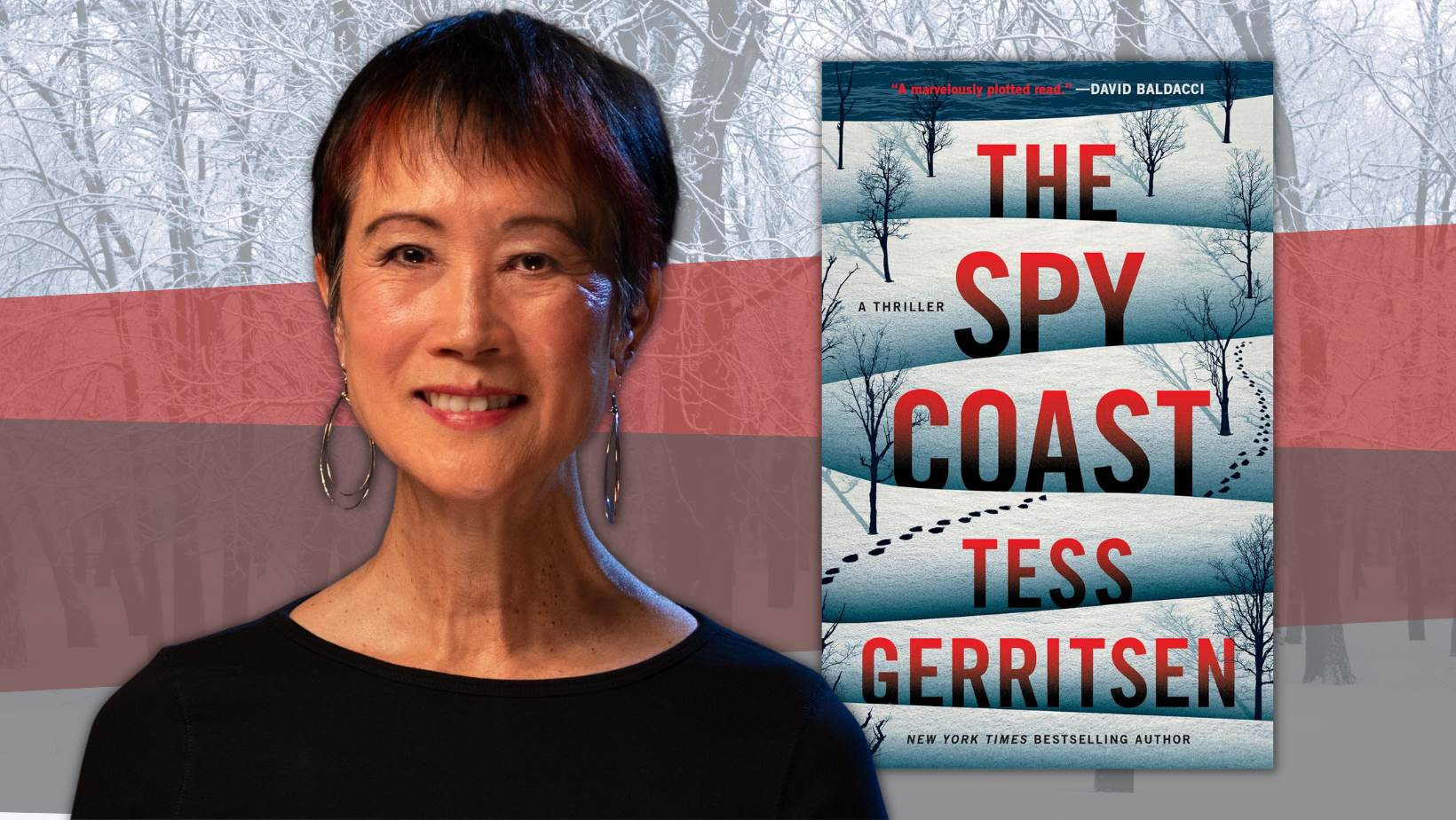
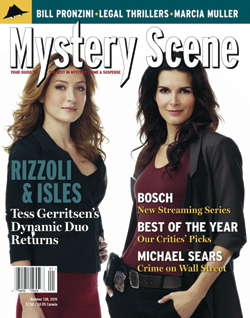
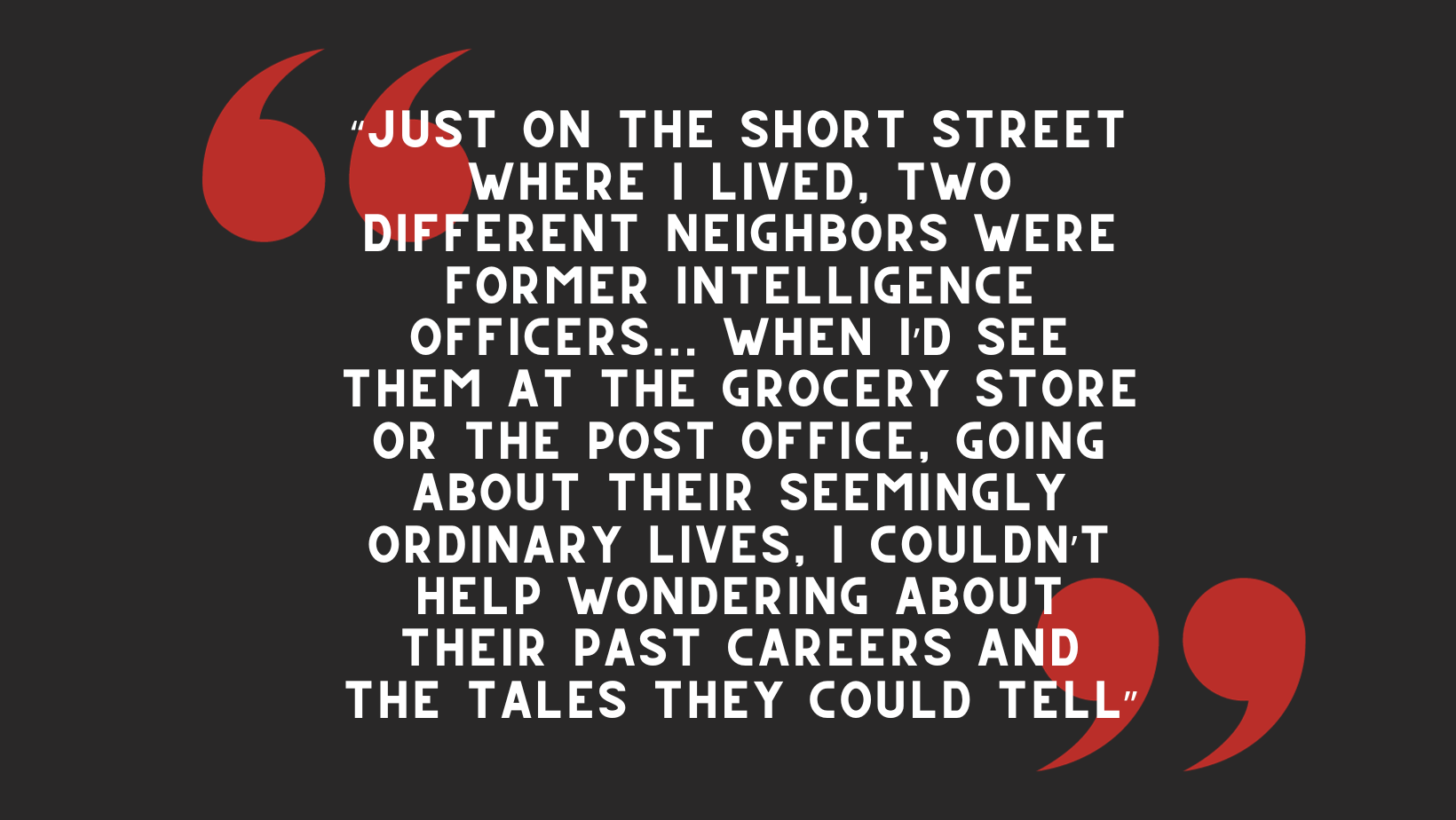
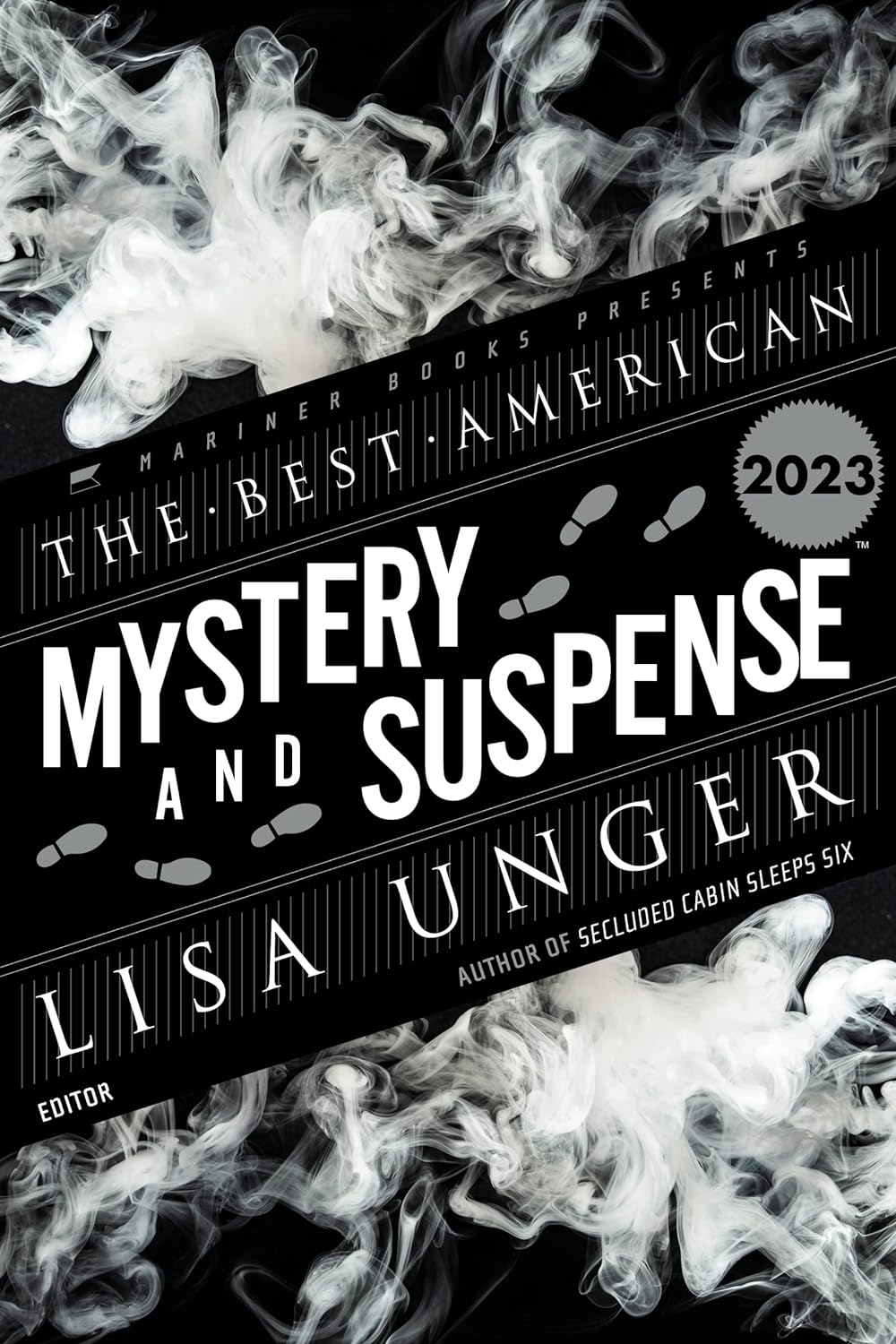
 Ben Boulden is the author of Western novels Blaze! Red Rock Rampage and Blaze! Spanish Gold, as well as the novella Merrick. He writes the column “Short & Sweet: Short Stories Considered” for Mystery Scene Magazine and has written more than 300 reviews, articles, and essays. He blogs haphazardly at
Ben Boulden is the author of Western novels Blaze! Red Rock Rampage and Blaze! Spanish Gold, as well as the novella Merrick. He writes the column “Short & Sweet: Short Stories Considered” for Mystery Scene Magazine and has written more than 300 reviews, articles, and essays. He blogs haphazardly at 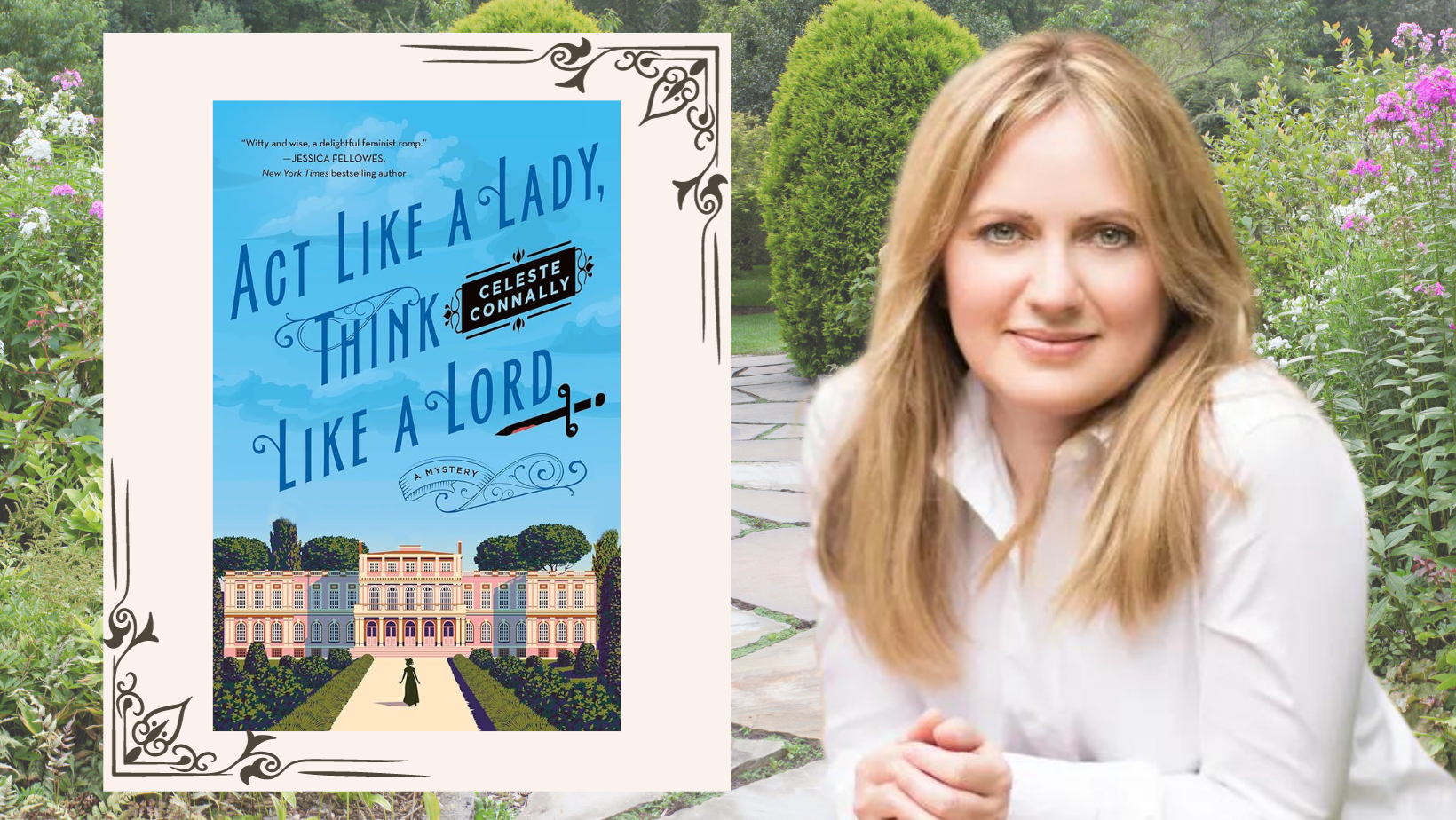


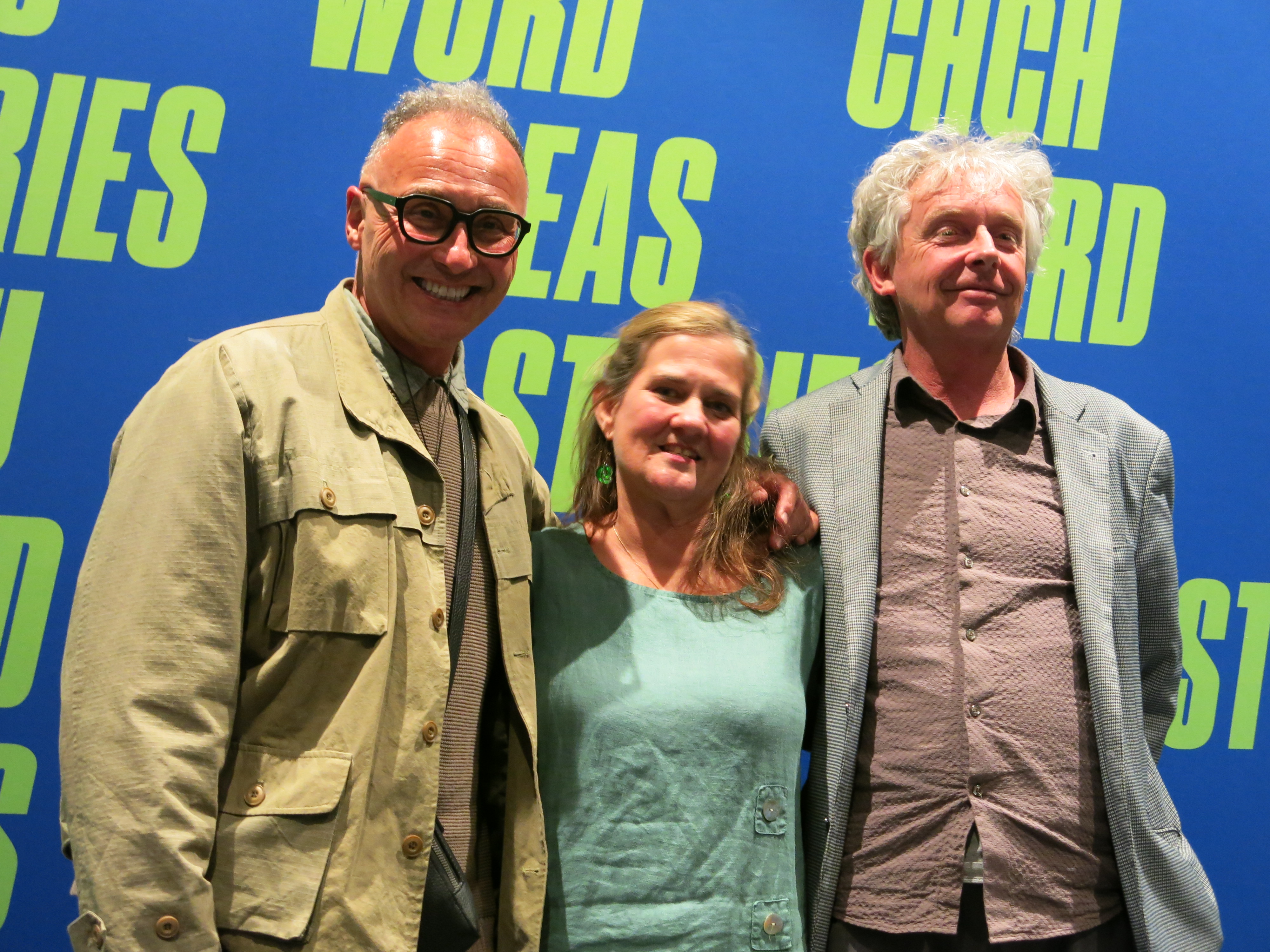


 Pictured L–R: Ruth Ware, Jean Kwok, Kate Mosse, and Lucy Worsley in a gathering of Christie aficionados featured on Agatha Christie: Lucy Worsley on the Mystery Queen.
Pictured L–R: Ruth Ware, Jean Kwok, Kate Mosse, and Lucy Worsley in a gathering of Christie aficionados featured on Agatha Christie: Lucy Worsley on the Mystery Queen. Calling such speculation “deeply wrong and deeply unfair,” Worsley added, “She was ill,” carrying out her actions while in “a fugue state” not unlike the shellshock that afflicted veterans of World War I. Further, Worsley believes Christie sought help for memory loss following her breakdown. After consultations with the Royal College of Psychiatrists, Worsley and her team were able to pinpoint the treating psychiatrist. “And you won’t hear about him anywhere else because he’s a new discovery in our program.”
Calling such speculation “deeply wrong and deeply unfair,” Worsley added, “She was ill,” carrying out her actions while in “a fugue state” not unlike the shellshock that afflicted veterans of World War I. Further, Worsley believes Christie sought help for memory loss following her breakdown. After consultations with the Royal College of Psychiatrists, Worsley and her team were able to pinpoint the treating psychiatrist. “And you won’t hear about him anywhere else because he’s a new discovery in our program.”

 Foyle’s War: The Complete Saga
Foyle’s War: The Complete Saga
 Inspector Morse: The Complete Case Files
Inspector Morse: The Complete Case Files
 Endeavour: Pilot Film & Complete Seasons
Endeavour: Pilot Film & Complete Seasons
 Prime Suspect: The Complete Collection
Prime Suspect: The Complete Collection
 Breaking Bad: The Complete Series
Breaking Bad: The Complete Series 
 24: The Complete Series (With Live Another Day)
24: The Complete Series (With Live Another Day)
 Homeland – various packages of Seasons 1–8 (prices vary)
Homeland – various packages of Seasons 1–8 (prices vary)
 Luther
Luther
 Shetland: Seasons One & Two
Shetland: Seasons One & Two
 Murder, She Wrote: The Complete Series
Murder, She Wrote: The Complete Series



